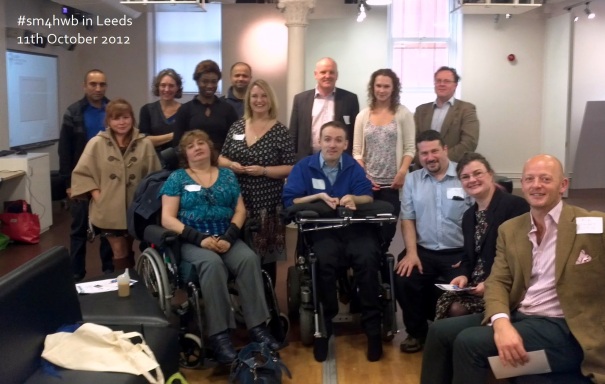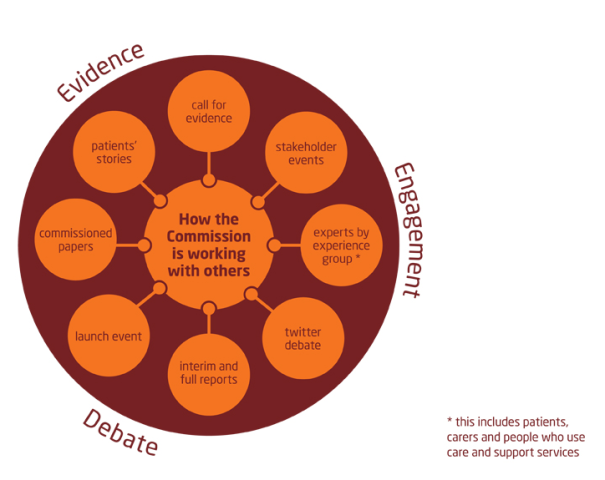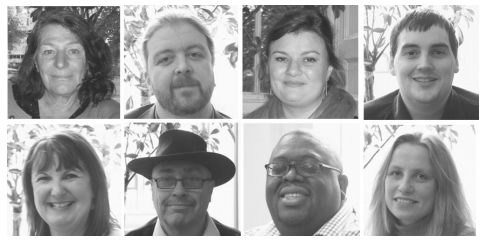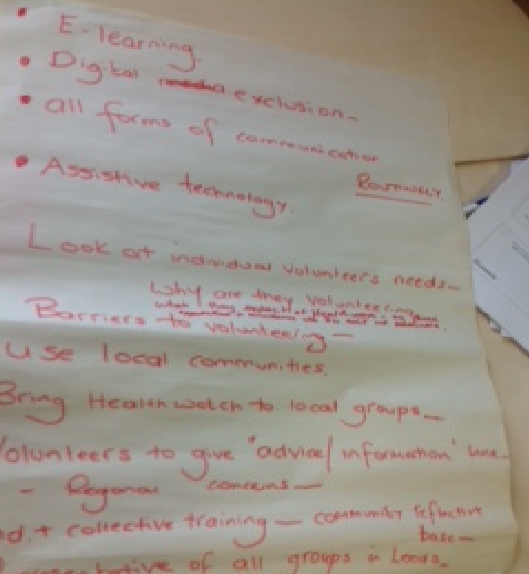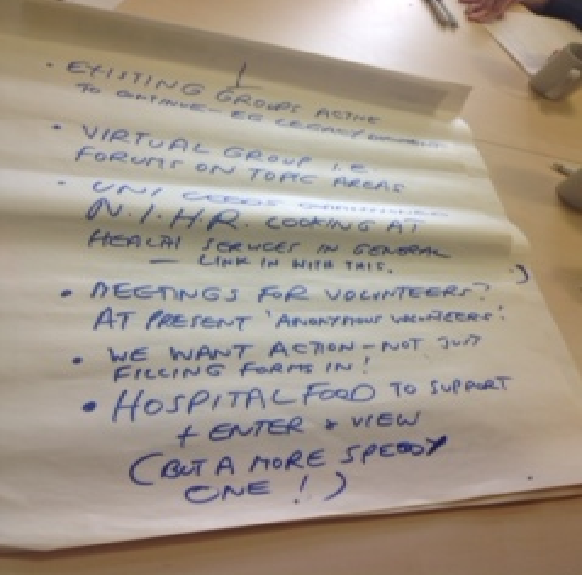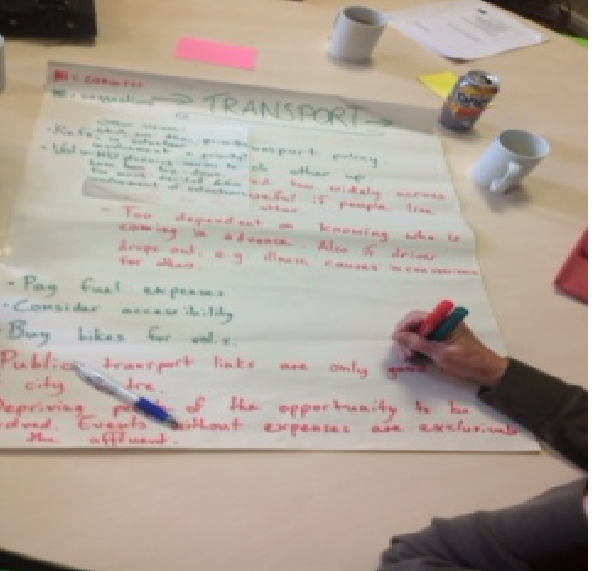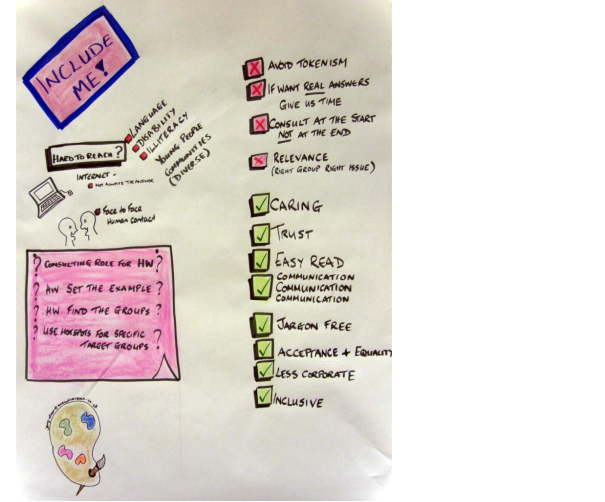Health and care organisations often ask about the differences between a Page and a Profile, so here is my usual response.
(TW: I use an example of someone posting on FB that they may have been assaulted later in this post. This section has a line of asterisks ***************************above and below it, so you may choose to skip that content)
Although these ideas are particularly relevant for health and care organisations. who frequently have a duty of care towards people using their services, they could equally apply to community groups, housing associations, and many other organisations.
Facebook is a hugely popular platform (1.15 billion monthly active users as of June 2013), no organisation with a social media strategy can afford to ignore Facebook.
Facebook Profile or Facebook Page?
Lots of people aren’t aware of some of the differences between Profiles and Pages on Facebook, so let me explain why in general, organisations would be well advised to use a Facebook Page over setting up a Facebook Profile.
Facebook Terms and Conditions
Facebook profiles are intended for use by individuals, not organisations. Its in the T&C (yes, I know people don’t often actually read them) which specifically state that FB Profiles are available to people (i.e. not organisations) “requiring that people use their real names“. If we don’t abide to T&C of websites we use, the company is able to delete them immediately. You don’t really need to read the rest of the post.
Sharing
Facebook states:
Use your privacy settings to control who gets to see your posts and timeline.
When you post a status update or photo on Facebook, in-line controls enable you to select your audience at the time you post. However, many, many people don’t adjust any of their settings*, and its important that organisations with a duty of care recognise and acknowledge this, even as they work to educate communities about how to be more literate with safety settings.
This means for most people on FB, everything they post is visible to all their “friends”. If an organisation is your “friend”, this means they will be able to read all of your status updates, see all of your photos and videos, unless you have taken specific steps to lock down who you are sharing your content with.
Unfriending
People are encouraged to connect on FB, but you can remove a connection to a friend that you are no longer comfortable sharing with and I would encourage anyone to be quite strict about this, and keep connections only with individuals who are a positive and supportive influence in your life. I would encourage people to consider carefully if it is appropriate to be “friends” with an organisation, rather than “like” their page or become a “fan”.
What any organisation looking to build communities wants is connections and conversations. If you position your brand or product as a “friend”, you’re encouraging “all or nothing”: overfamiliarity (i.e. “friends”, reading all of a persons’ status updates and accessing all of their photo and video content: more of which in just a moment), or complete disengagement (i.e. “unfriending”).
What we’re aiming for is facilitating conversations that are safe and appropriate, and the best way to do this is through using a Page with “likes”. In this way, conversations are happening on your Page, and you don’t have a stream of status updates appearing about things unrelated to the point of your Page.
Boundaries
Facebook is designed to connect individuals, and part of this, of course, is to connect around shared interests, whether that’s a brand, or a health organisation, or even a pop star. However, the connections we make as “fans” are very different to the connections we make as “friends”, and this is entirely appropriate. I might be very happy with the service I get from a company, but I still recognise that a company is not my “friend”!
Reducing human relationships by attempting to make an equivalence with connection to your brand or product instinctively feels wrong, doesn’t it? It either makes your brand look needy, or demonstrates a lack of understanding of appropriate boundaries in social media.
Safeguarding
If we work with vulnerable people, especially children and young people, we have to be very aware of safeguarding issues. As Facebook states:
Staying safe online is a lot like staying safe offline. Whether you’re walking down the street or connecting with friends on Facebook, it’s important to keep a few key safety precautions in mind.
As an organisation with a duty of care, we have to be very mindful of the Safeguarding implications of the work we do, so here is an example of a case study.
**************************************************************************************Case study: Timmy and CAMHS Team Rocks
A health provider develops a Facebook “profile”, instead of a “Page”. They call it “CAMHS Team Rocks” and one of their “friends”, Timmy, posts something publicly that appears in our timeline.
Timmy posts that he’s consumed alcohol or illegal drugs, has lost his memory, and may have even been assaulted.
As a health and care organisation, we must be mindful of our responsibilities as we have a duty of care.
This means that if you became aware of someone doing drugs, or experiencing an assault, you would have a direct legal responsibility to flag this as a safeguarding issue. This would mean having to inform your line manager, and also potentially involving the police or social services.
How would you deal with this issue? Would you discharge your responsibilities? Are you prepared to live with the consequences of this decision?
If the aim is to engage with young people on their terms, would this help or hinder that outcome?
Now, lets look at the same case study, but where “CAMHS Team Rocks” is a FB Page, not a profile.
Timmy posts that he’s consumed alcohol or illegal drugs, has lost his memory, and may have even been assaulted.
This doesn’t show up on the “CAMHS Team Rocks” page, unless Timmy deliberately “tags” them, including them in the conversation, and inviting them to get involved to offer whatever assistance Timmy may require, in line with their safeguarding policy and the legal frameworks.
Here, the choice about the way Timmy uses his network to provide support in a difficult time is in his direct control.
I know which one of these case studies is more professional and more ethical, don’t you?
**************************************************************************************************
Page statistics
Finally, let’s look at the benefits of having a Facebook Page, for any organisation that’s strategic in its use of social media.
Admin Panel
All Facebook Pages have an admin panel, and this is where your most basic statistics can be seen, Now, as I’ve said many times before, social media isn’t about the numbers. But, they do serve as a guide to help you learn what appeals to your communities.
By checking your admin panel, you can see the “reach” of particular updates, and start to work out what kinds of content work for your community. Which post got people talking? Did having a photo or video result in more engagement?
You can also use content to boost traffic by promoting specific entries on the page, according to your budget (see Promoting your Facebook Page, below).
Insights
You also have access to the Insights centre, where you can see more detailed information about content you’ve posted, including “virality”, or the likelihood that your content is shared by people who see it. This single metric shows you if people who see your content are sufficiently interested to continue the conversation with their friends, and so on.
Of all the metrics you will see, this single metric is the one to spend most time thinking bout. What was it about a piece of content that interested people? Was it a video, or a photo? Does a 2 minute video get shared more than a 6 minute video?
You will also be able to see how many people actually talked about the information or opinions you share. What differences are there between posts that people talk about and ones they just ignore? Does the time of day, or day of the week affect who talks about your content? Which subjects create a buzz in your communities?
Promoting your Facebook Page
If you have a Marketing and Communication Strategy, you may have identified growing communities in social media as one of your goals. One of the advantages of a Page is that you can pay Facebook to “promote this Page”.
This means enabling it to be seen more often at the top of your Page Fans’ feeds, or even turning up as a Suggested Page in potential new Fans’ feeds. Whether you choose to use this facility or not, this is an useful feature, and one that Profiles have no equivalent to.
Further analytics
Its not just about people “liking” your Page, or even if they directly engage with your content. You can learn a lot from how people get to your Page, how long they stay, whether they come back, how often they come back etc. You can use products like Google Analytics for information like this, supplementing the granular information provided by FB stats to get an overarching view of how your Social Media Strategies are working on Facebook, or indeed any other Social Network.
It’s conversations that matter
Finally, I want to emphasise that ultimately all social media is a way of having conversations. If all that happens on your Page (or even on your Profile), is you posting updates that no-one comments on and no-one shares, then your Facebook presence needs a re-think.
The numbers don’t matter, compared to the quality of the conversation, but we would want to see general movement towards greater engagement, even if we didn’t particularly want thousands of fans.
It’s relationships that matter
Building relationships in social media takes time and effort, as it does in the real world, but the benefits of developing a community that cares about your brand, that is willing to comment on ideas you have or events you’re hosting makes it all worthwhile. Go on, try it!
What are your experiences?
I would love it if you would like to share some stories about how you approached the “Page” versus “Profile” debate in your organisation. What decisions did you make, and why?
I’m particularly interested to hear if you addressed Safeguarding in social media spaces in your strategic approach, but: please protect confidentiality, changing names and personal characteristics of people involved!
Resources
*FB Settings notoriously change continuously, so information about the rapidly becomes out of date and I am not including current info about how to adjust settings. For the latest information on your privacy settings, click Account at the top of any page and select Privacy Settings in the dropdown menu that appears.
http://newsroom.fb.com/Key-Facts
http://newsroom.fb.com/Safety-and-Privacy
https://www.facebook.com/safety/tools/
https://www.facebook.com/safety/philosophy/
